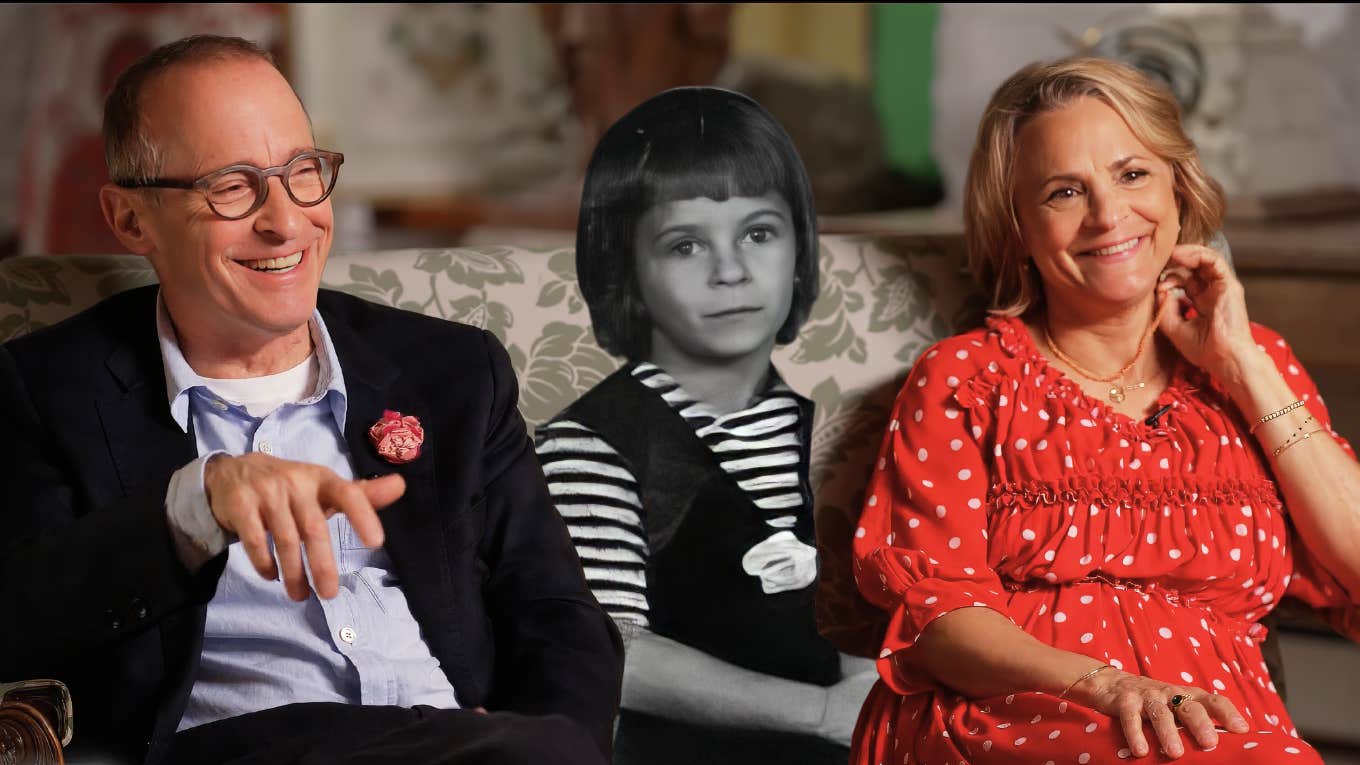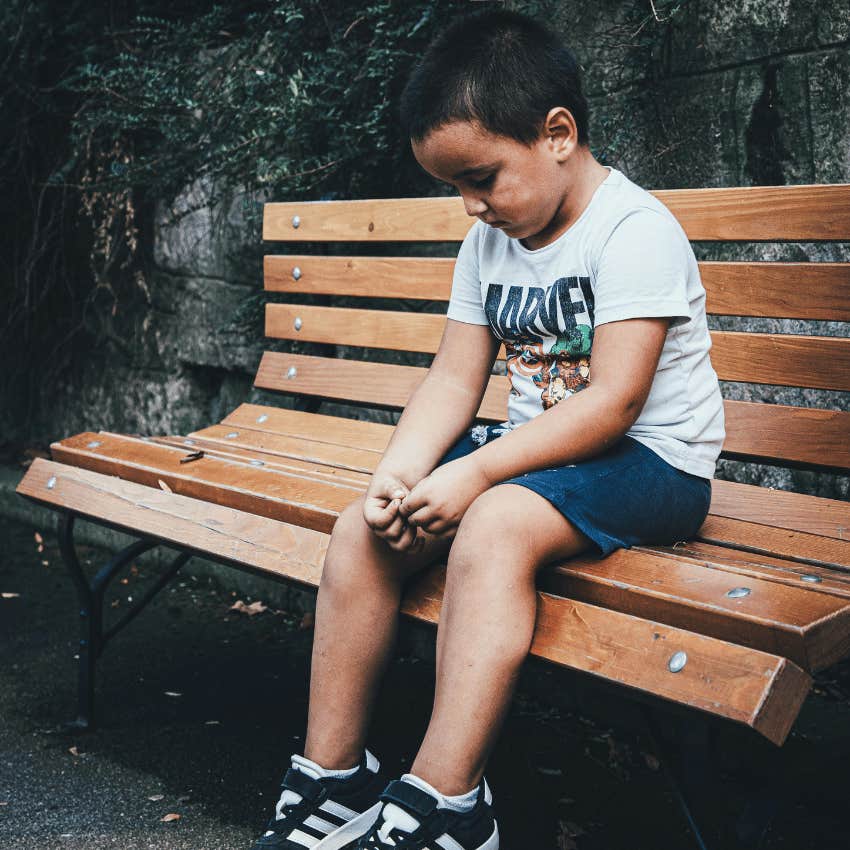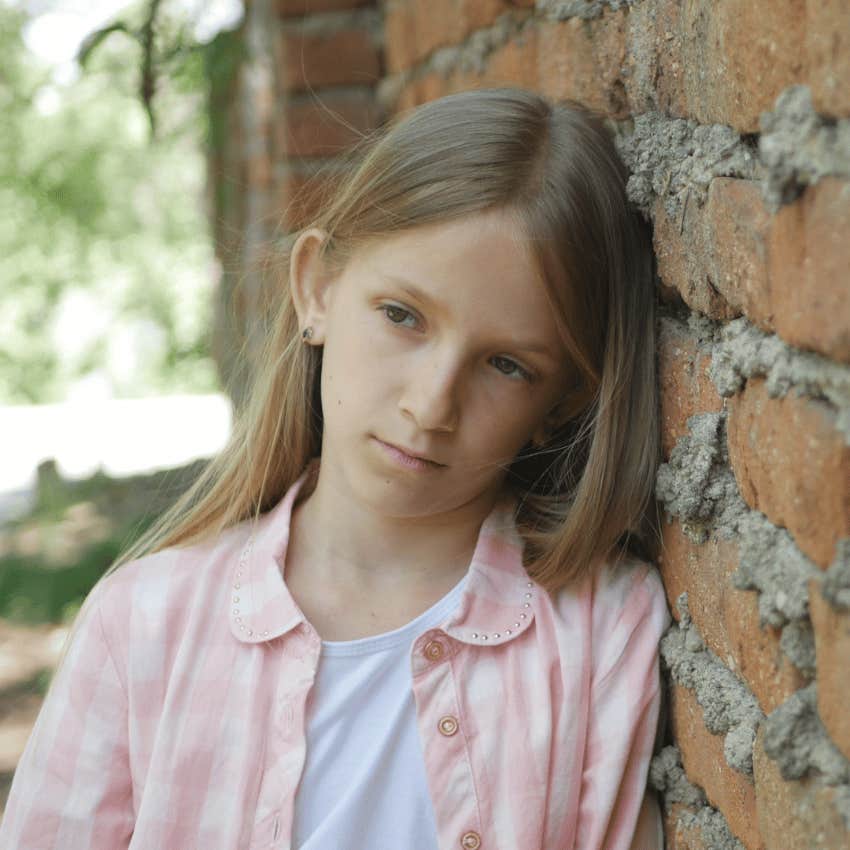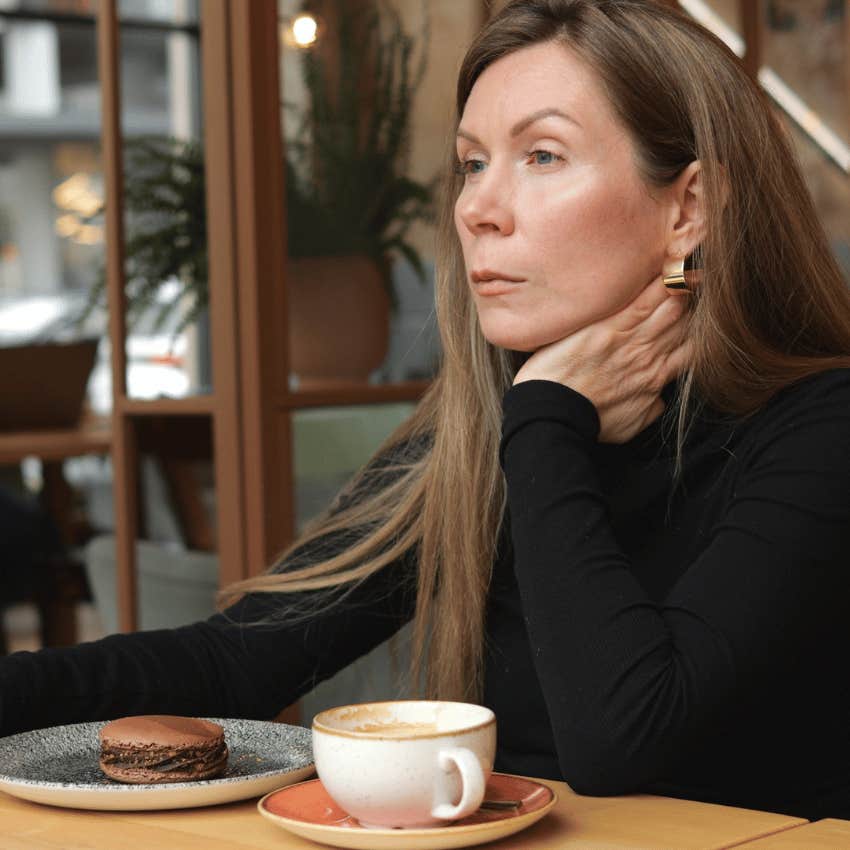There’s A 'Tiffany' In Every Dysfunctional Family
We all know David and Amy Sedaris, but what happened to Tiffany Sedaris?
 Sedaris Family Photo via Medium | CBS News | 60 minutes
Sedaris Family Photo via Medium | CBS News | 60 minutes Editor's Note: This is a part of YourTango's Opinion section where individual authors can provide varying perspectives for wide-ranging political, social, and personal commentary on issues.
I’ve read several of David Sedaris’ books through the years and have belly-laughed my way through them all. He’s a phenomenal storyteller from a similarly large family as my own. Sedaris has a deep understanding of humor, observation, and situational irony as it relates to the human condition. I'm also a fan of his brilliant sister, Amy Sedaris, who starred in the late nineties Comedy Central classic Strangers with Candy.
David and Amy Sedaris had another lesser-known sister named Tiffany Sedaris. Tiffany was a locally-loved artist who lived in Somerville, Massachusetts, who died by suicide just a few weeks shy of her fiftieth birthday. A few years ago, I read Sedaris’ 2013 narrative “Now We Are Five” in The New Yorker.
His piece moved me so much that I embarked on a brief quest to learn more about the lesser-known Sedaris sister, the other sister: Tiffany.
The Sedaris kids liked to linger around the dining room table after a meal, telling stories and laughing out loud with their mother. I could envision a young Amy Sedaris sitting at a long table, impersonating funny characters, which later became her bread and butter. But out of all the children, Tiffany, according to David, was the most devoid of their mother’s love and affection. When asked if Tiffany was the difficult one by VICE journalist Blake Bailey in a 2015 interview for their magazine, Sedaris responds:
“Yes. She was a lot like my mother. The physical resemblance was almost spooky, and they had a similar personality. Perhaps because of this, our mom never really liked Tiffany. Even as a child I looked at my sister and wondered what that would be like, not to feel the warmth of my mother’s love. Tiffany didn’t. There was always a nervous quality about her, a tentativeness, a desperate urge to be in your good graces. While the rest of us had eyes in the front of our heads, she had eyes on the sides, like a rabbit or a deer, like prey, always on the lookout for danger. Even when there wasn’t any danger. You’d see her trembling and think, You want danger? I’ll give you some danger…”
In “Let It Snow,” Sedaris' 2003 short narrative featured in The New Yorker:
“Poor Tiffany. She’d do just about anything in return for a little affection. All you had to do was call her Tiff, and whatever you wanted was yours: her allowance, her dinner, the contents of her Easter basket. Her eagerness to please was absolute and naked. When we asked her to lie in the middle of the street, her only question was 'Where?'”
 Boris Hamer | Pexels
Boris Hamer | Pexels
The scapegoat child is often the most sensitive one out of all the children.
Often the pain-in-the-butt truth-teller, scapegoat children are a potential threat to the family’s facade, which becomes a repository for the narcissist parent’s toxic shame and rage, called psychological projection. Over time, siblings, extended family members, family friends, and even neighbors will become unconsciously biased toward the scapegoat child.
This is due to the narcissistic parent’s projection and quite possibly from a subtle, long game behind-the-back smear campaign to neutralize their threat for when the scapegoat child starts talking, even passing their bias onto the next generation of the family. The scapegoats are more often tolerated than loved, so much that it’s palpable.
The scapegoat child may grow up to internalize their family’s disrespect as deserving, or much worse — normalize it, which may later result in the manifestation of their family’s toxic dysfunction and shame in their own life as well, thus becoming the “family problem” for real. This way, none of the family members, especially the narcissist parent, have to examine themselves in return.
Research from 2020 confirms that individuals living with narcissism create a “golden child” and one or more scapegoats within a household. This labeling gives people with narcissistic personality disorder the freedom to manipulate, play people against each other, project their anger, and displace all the blame onto someone else rather than be personally accountable for their actions.
Think of narcissistic abuse as generational trauma that gets passed down from one generation to the next, like the childhood game of Hot Potato. I suspect this covert narcissistic abuse pattern was prevalent in the Sedaris family. So much of this abuse pattern is unseen and unconscious by those deep inside the family system. Still, the effects are disastrous and undeniable just the same.
 CreativeZone | Shutterstock
CreativeZone | Shutterstock
Although David talks about Tiffany, what I find revealing is what he has to say about their mother.
Two years after the VICE interview in May 2017, Sedaris read from his book Theft by Finding on NPR’s Fresh Air. The Sedaris matriarch may have struggled with narcissism or Cluster B, a personality disorder umbrella term that covers sociopathy, borderline, histrionic, and narcissistic personality disorder. In short, maladaptive behaviors can include a high degree of manipulation — lacking core empathy, which some speculate derives from unresolved childhood trauma that has the potential of passing down generationally as hurt people hurt people.
Sedaris recognizes their enabling family dynamic, especially regarding the mistreatment of Tiffany. He shows self-introspection here and a sense of profound regret:
“The rest of us should’ve said, 'Mom, you need to do something about this, because that’s not OK for you to treat somebody that way.' But we never said that. We never called our mother about her behavior towards Tiffany. You think: You’re 7, what are you going to do? But I wasn’t always 7. I was 20 and I was 30. Tiffany had a lot of anger at us and a lot of it was well-founded. We were adults, we could’ve said to our mother, 'This isn’t okay.'"
The environment that surrounds a narcissist can become rife with cognitive dissonance and harbor a strange, collective apathy with the suffering of another, in this case, Tiffany. Often, narcissistic families are run similarly to a Pyramid Scheme with the Top Dogs — The Golden Children and their offspring — sitting pretty at the tip-top point of the pyramid with the lowliest members on the far bottom, flared to each side, who are often treated as an afterthought in every regard, if they’re regarded at all.
Tiffany's parents would eventually send her off to Élan.
When Tiffany’s friends had written messages in her ninth-grade yearbook with one drawing an unfurled marijuana leaf, suggesting they meet up to get high that summer, in addition to the two times she ran away from home, their parents would react by sending her off to Élan. The private, coeducational, residential behavior modification boarding school for wayward teens was located, as one former resident said, “in the middle of Nowhere, Maine,” about a fifteen-hour drive from the family home in North Carolina.
In 2017, Sedaris commented on NPR’s Fresh Air that their mother had learned about Élan from watching The Phil Donahue Show. He’d also validated Tiffany’s traumatic experience when he confirmed in his interview with Terry Gross that the boarding school was a real “horror factory,” the perfect descriptor.
Research studies define 'therapeutic boarding schools' as facilities that are designed to control and minimize deviance among young people in their care. Former students recalled ways in which they resisted institutional constraints through faking compliance, subverting regulations, and overt rule-breaking.
Élan School was similarly abusive to Paris Hilton’s Provo Canyon School — it's since been shut down after myriad abuse claims were publicly unleashed by their previous students, including Tiffany. She would never be the same after she was sent to Élan and reportedly harbored a deep, personal resentment towards David, Amy, and the rest of her family. It was eerie to see an online, happy family photo of The Sedaris Family, minus Tiffany, during those years she spent at Élan — an almost ominous foreshadowing of what life would look like some decades later.
When asked if “the Élan thing was the most valid aspect of whatever overblown grievance Tiffany had against the family” by Blake Bailey for VICE, Sedaris responded: “I can’t remember a single conversation where she didn’t talk about that place, I mean, ten, 20, 30 years after she left it.”
Tiffany may have been experiencing a repetitive thought process called rumination, which is quite common after experiencing a traumatic event that could be interpreted, in Tiffany’s case, as a parental/family betrayal. "After narcissistic abuse, rumination is expected. This feedback loop will consume you and cause cycles of anger or shame. It feels like you are stuck and cannot move on. Rumination is a self-perpetuating vicious cycle." Tiffany’s rumination was a typical response to narcissistic familial abuse.
 ShowRecMedia | Shutterstock
ShowRecMedia | Shutterstock
At the end of the day, the scapegoat has two choices: suck it up and continue to deteriorate, or as painful as it is, go no-contact because things will never improve.
For one, the narcissist and their cult of enablers will never apologize or validate the scapegoat’s trauma-filled memories, a foundation required for any healthy, trusting, emotionally safe, authentic relationship. Anything short is gaslighting.
She would struggle with financial and relationship stability throughout her short life. Up to her suicide, Tiffany existed on the fringes of her famous family: the black sheep, the scapegoat, the flighty one, the hot mess truth-teller; the family’s collective eye roll. There’s a Tiffany in every dysfunctional family.
Tiffany would die alone atop a mattress on the dirty floor surrounded by fake, plastic flowers similar to Sir John Everett Millais’ famous Ophelia painting.
Her body remained undiscovered behind a locked door for five days in a ramshackle house she shared with two other roommates on a dead-end street in Somerville. It was in such a deplorable state that it had to be eventually torn down — deemed uninhabitable.
In 2017, David confirmed to Terry Gross that Tiffany’s ashes were left to someone she used to work with. One of their sisters had called the person to ask if the family could have a thimble-sized amount of Tiffany’s ashes to scatter at Emerald Isle Beach, an annual hot spot visited by their family as detailed in David’s memorable narrative “The Ship Shape” from his 2020 collection Best of Me. The woman, however, said no to the sister’s request out of respect for Tiffany’s wishes.
Tiffany needed to have the last word — and nothing screams the last word more than a punctuated suicide.
The surviving Sedaris siblings would study the many photos that Amy took of Tiffany’s scatterbrained-looking apartment with the intent of a steely-eyed forensic, looking for clues.
From “Now We Are Five:"
“Toward the end of the week, I came upon my father in Amy’s room, sifting through the photographs that Tiffany had destroyed. In his hand was a fragment of my mother’s head with a patch of blue sky behind her. Under what circumstances had this been ripped up? I wondered. It seemed such a melodramatic gesture, like throwing a glass against a wall. Something someone in a movie would do.
“Just awful,” my father whispered. “A person’s life reduced to one lousy box.
I put my hand on his shoulder. “Actually, there are two of them.”
He corrected himself. “Two lousy boxes.”
If you or somebody that you know is experiencing a mental health crisis, there is a way to get help. Call SAMHSA’s National Helpline at 1-800-662-HELP (4357) or text "HELLO" to 741741 to be connected with the Crisis Text Line.
Carolynn Kingyens is the author of two poetry collections Before the Big Bang Makes a Sound and Coupling. In addition to poetry, Kingyens writes narrative essays, book & film reviews, and short fiction.

